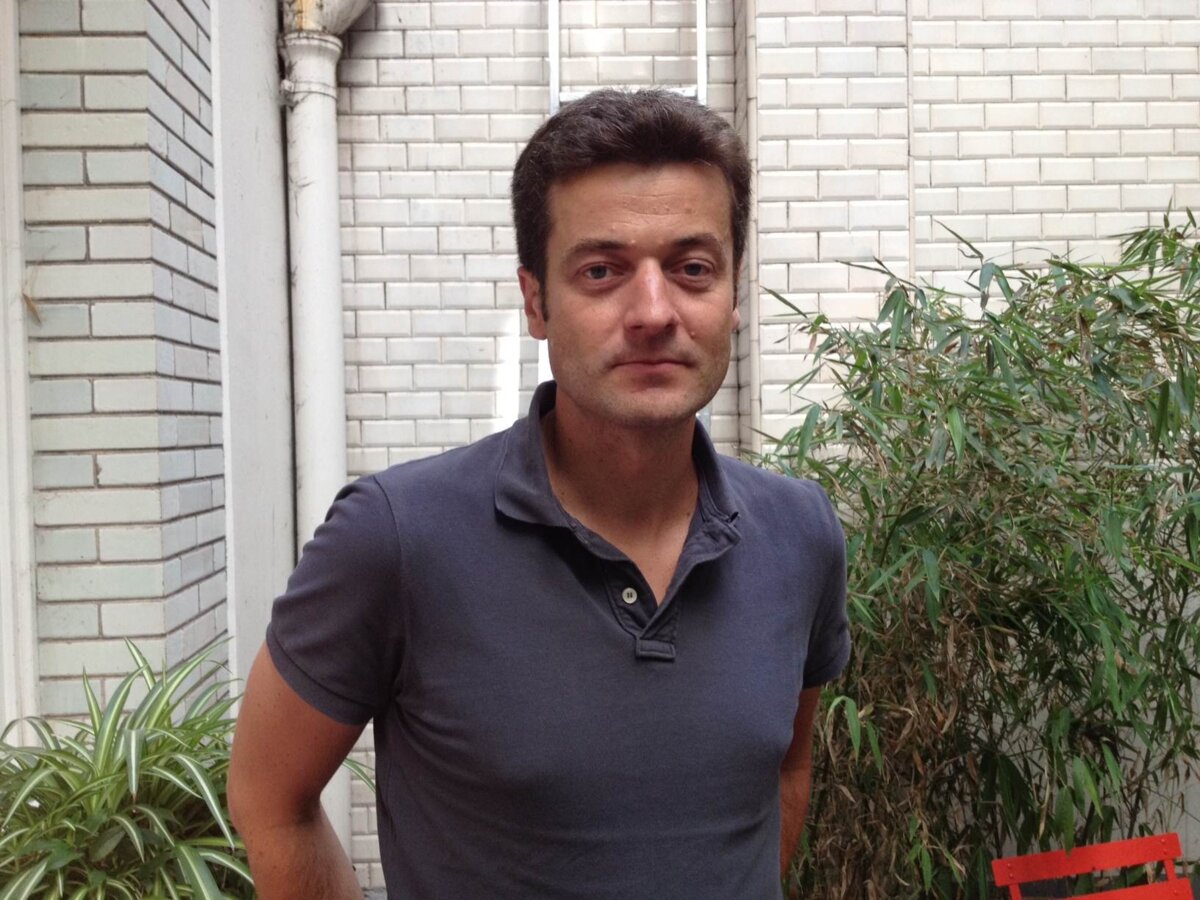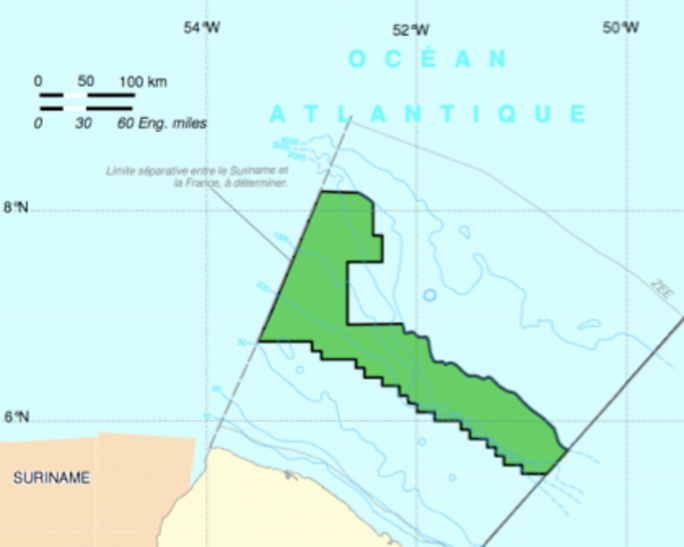Three weeks before the government’s key-note conference on the environment on September 14th, prime minister Jean-Marc Ayrault stated that the ban on the controversial exploitation of shale gas (1) had not been “settled”. The prime minister explained: “Hydraulic fracturing is banned. However, we must put on the table other solutions that might exist.” Since these comments there have been protests from environmental groups, and the director of the green activist organisation Greenpeace France, Jean-François Julliard, says he was “astonished” by Ayrault's words. “We were not at all expecting that this debate would return to the centre stage,” he says. In an interview with Mediapart the Greenpeace director insists that the socialist government has shown “no strong commitment, no gesture, no signal, nothing that reassures us” on environmental matters. And his organisation, which has 150,000 members, has still to make up its mind whether it will take part in the government’s environmental gathering.

Enlargement : Illustration 1

Mediapart: What's your reaction to the prime minister's declaration?
Jean-François Julliard: We reacted badly because we are expecting a lot from the conference on the environment and the ecological and energy transition announced by [President] François Hollande and taken up by Jean-Marc Ayrault. But if this transition means exploiting shale gas reserves, then no!
We feel that the prime minister has got it completely wrong on the subject. He met us along with other non-governmental organisations at the end of July, and when we asked him what he would do if there appeared to be techniques to explore for and to exploit shale gas that he judged cleaner, he had no response. We really had the feeling that he was hiding behind the ban on hydraulic fracturing, which is very convenient.
[Environment minister] Delphine Batho rather disowned his comments on Wednesday evening (during the summer party conference of the green movement Europe Ecologie-Les Verts) in declaring that the energy transition would not go via new fossil fuels. But who should one listen to?
Mediapart: The proponents of shale gas say that its exploitation will give France the energy independence it needs to ease its trade deficit and free itself from dependence on Russian gas. How do you respond to them?
J-F.J.: Frankly, energy independence is a pious hope. It's like when Nicolas Sarkozy said that nuclear power guaranteed France's energy independence. No: you have to go and get the raw material from Niger, Kazakhstan or elsewhere...
Perhaps in the very short term with shale gas you could dispense with part or all of the Russian gas, but it wouldn’t solve anything. It's not by discovering new deposits of fossil fuel that you are going to bring about a real transition. The government is not asking itself about questions of consumption, of energy requirements, of restraint, of energy efficiency.

Mediapart: When the government authorised Shell oil wells in the high seas off the coast of Guiana, it highlighted its plan to use the revenue that would flow to finance the energy transition. Don't you believe that?
J-F.J.: It's not acceptable. France has set ambitious targets for the reduction of greenhouse gas emissions. If the exploitation of fossil fuels takes place we won't achieve them. If you have to extract oil in difficult conditions for the environment to finance the development of solar or wind energy, that's not on! Moreover it was lobbying by the oil industry that won in that affair, and which claimed the head of [reshuffled environment minister] Nicole Bricq. Jean-Marc Ayrault insisted it was only a ministerial reshuffle after the parliamentary elections, but that's not tenable for a second.
Mediapart: Do you think this government is capable of resisting lobbying from the oil industry?
J-F.J.: Less and less. If you had to make a judgement on the actual evidence, for the moment no – I hope I'm wrong.
Since François Hollande's election all the signals have been negative. The only positive signal is the environment conference. But that's not enough, there has to be a policy proposal, a plan, something. It's good to talk about biodiversity and energy but it's the umpteenth time that we've done that and it's not by doing that that things will move forward. From the beginning, as regards policy proposals, there's been nothing satisfactory: Guiana oil drilling, the opening of a new uranium mine in Niger and now a big question mark over shale gas. We had been astonished to hear the initial declarations from [Minister of Productive Recovery] Arnaud Montebourg announcing that the subject was not closed. We were not at all expecting that this debate would return to the centre stage. For us, shale gas was finished.
We hope that on the occasion of the environment conference the president or the prime minister will make the clear political commitment to not exploit shale gas – even if we believe that less and less in view of what's happening.
When François Hollande went to the Rio+20 [the United Nations Conference on Sustainable Development that took place from June 20th to June 22nd] he had a great opportunity to mark the start of his five year term with a strong commitment on the environment. We saw his speech: there was nothing. No strong commitment, no gesture, no signal, nothing that reassures us.
--------------------------
1: In common with a number of countries France is thought to have abundant reserves of underground shale gas, called 'gaz de schiste' in French. However, many campaigners claim the current method of extraction known as hydraulic fracturing or 'fracking' is damaging to the environment, and the exploitation of shale gas in France was banned under the presidency of Nicolas Sarkozy.
'Building a new nuclear power station makes no sense'
Mediapart:The revelation this summer about the existence of cracks in certain core tanks in nuclear reactors, notably in Belgium, has rekindled the debate on the safety of nuclear power. During the presidential campaign Greenpeace published a critical report by experts on failures of security and safety in the French nuclear industry. Do you have confidence in the [French Safety Authority] the Autorité de sûreté nucléaire (ASN)?
J-F.J.: Up to now we have generally had confidence in their expertise. But everyone hides behind the recommendations of the ASN. As if it is they who decide everything, which is not true. There is also [the energy company] EDF, [the nuclear power company] Areva and the state. The ASN doesn't go far enough. That's why we have carried out incursions into nuclear power stations and flown over them. Safety is not an exact science. The ASN recognises there are risks, that it cannot guarantee safety 100%. So what counts is the political interpretation that follows, and the choices made as a consequence. We are now in the process of losing the chance to make new choices.

Mediapart: François Hollande wants to bring down the proportion of electricity produced by nuclear power to 50% by 2025, from the current level of 75%. Yet as the nuclear energy consultant Yves Marignac has pointed out, by 2027 80% of French nuclear reactors will be more than 40 years old and will thus either have to face heavy maintenance costs or be closed down because of their age. How do you interpret the head of state's position?
J-F.J.: We don't understand it. We have pointed out to him several times that the equation he has put forward doesn't work. We have met teams from the prime minister's office and the Elysée: no one can say how this reduction to 50% will actually work. Which power stations are going to be shut down? Or kept going? For how long? There is no scenario planned. And with the closure of the nuclear power station at Fessenheim there is no transparency either. And it takes three years to close a nuclear power station.
Mediapart: The scenario currently on the table is for the closure of two reactors between now and 2017, and afterwards of all the others reactors involved in the reduction to 50%. Is this timetable realistic?
J-F.J.: No. Or rather you'd have to put it in operation straight away and take drastic measures. You have to evaluate the requirements and consumption otherwise it's not credible. Not to mention the starting of the European Pressurised Reactor (EPR) at Flamanville in north-west France which will take place we don't know when and will affect the equation. That nuclear power station is totally absurd. There is absolutely no justification for building these new reactors. It is utterly paradoxical to have a head of state who announces the wish to start a real move towards a reduction in nuclear power, and who builds a new nuclear power station which we don't need. It makes no sense.
There is no clear message. Today, faced with this situation, we are simultaneously expectant and dissatisfied. If François Hollande continues in this direction he is going succeed in angering within the space of a few months not just organisations defending the environment but also industry and local populations.
'The conference is not representative'
Mediapart: For the government the environment conference due to open on September 14th is the counterpart to the social conference held in July that brought together France's traditional “social partners” such as the trade unions and employers organisations to discuss employment, the workplace and the economy. Do you feel like you are a “trade union” for the environment?
J-F.J.: No, no. We are not a negotiating body. We are not an “environmental partner” of the government. The state is deceiving itself. And in any case, we don't have any policy proposition on which to negotiate. In reality, for us the most important thing is the debate on energy that will follow.
Mediapart: How does Greenpeace assess the outcome of its participation in the high-profile round table debate on the environment known as the Grenelle de l'environment that took place in the summer of 2007 under President Nicolas Sarkozy?
J-F.J.: In a muted way. It was not a complete waste. There was enormous enthusiasm at the start but major disappointment afterwards. I think in hindsight it would have been better if we had not taken part. We would certainly have been stronger by being outside of it. The decision to go, knowing that the question of nuclear power would not be tackled, seems to me to have been too big a compromise for Greenpeace.
If the same thing on nuclear was said to us today in relation to the September environment conference we wouldn't hesitate a second in deciding not to take part. In any case, we still haven't decided 100% if we are going to the conference or not. In the first provisional agenda it mixes up objectives, methods and results. To discuss the terms of debate over energy at the same time as speaking about the energy-saving renovation of buildings in the space of a few hours seems improbable to me.
The other big question mark concerns who will be around the table: the participants at the Grenelle round table (the state, non-governmental organisations, local authorities, employers organisations and trade unions) plus parliamentarians. For us, that's not appropriate. It's not representative. There have been changes in the environment association sector between 2007 and 2012. Lots of associations, institutes and experts who should be there are absent. With whom will one discuss building renovation? Greenpeace isn't competent to do so, it's not our speciality. And transport? We withdrew from the follow-up committee that oversaw the work of the Grenelle and have suggested we be replaced by the Réseau action climat [Climate Action Network] which brings together 18 organisations, including us. The environment ministry has refused this. All this means that we are reserving our response to the conference, even if we really want to believe in it.
---------------------------------
English version: Michael Streeter


